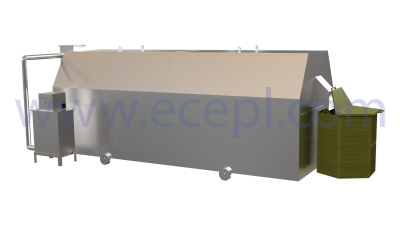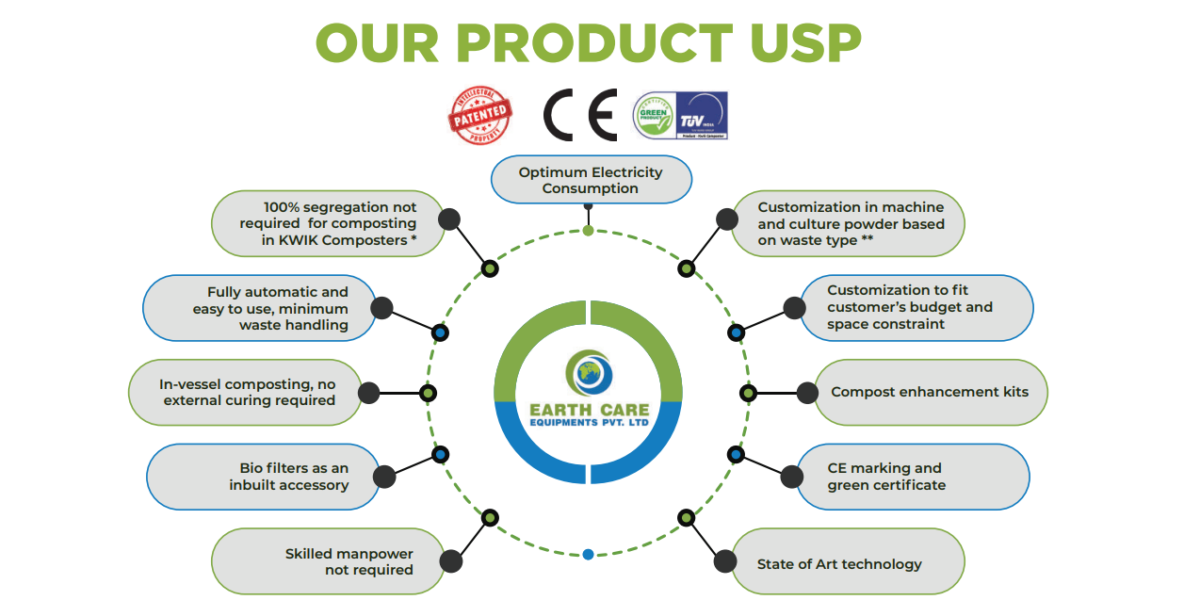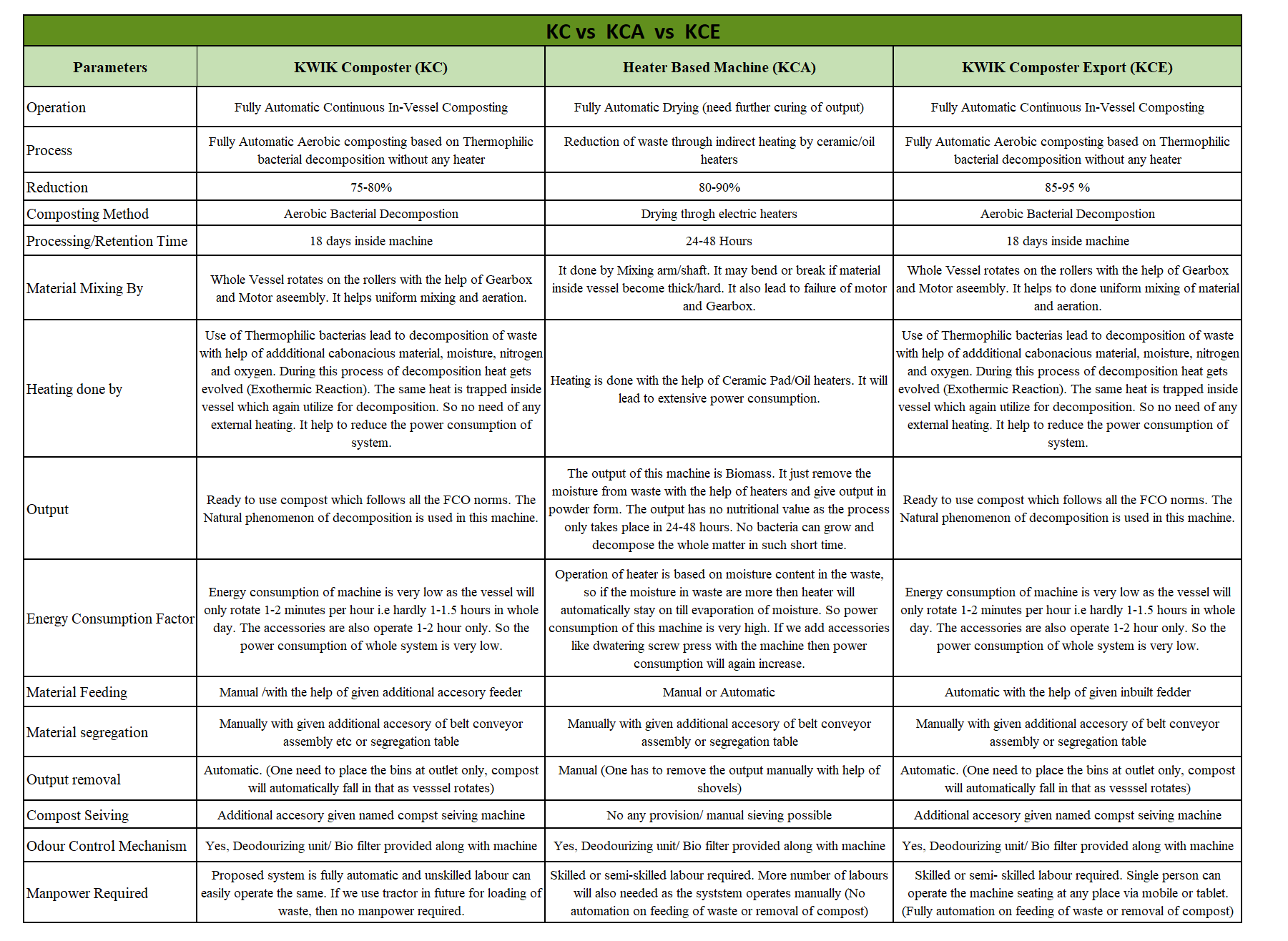
The KWIK Composter, an automatic Bio-Mechanical Composter and Organic Waste Converter, employs sustainable microorganism-based technology. It efficiently converts organic waste, including food scraps and biodegradable materials, into nitrogen-rich compost, reducing its volume by nearly 80%.
Why use composters? What is the problem that they solve?
The KWIK Composter, suitable for processing over 25 kilograms of food waste, finds applications in diverse settings, including landfills, industrial canteens, residential communities, hotels, shopping malls, hospitals, and educational institutions in Delhi.
- Utilizing a kitchen composter machine not only relieves the burden on landfills but also enriches the soil, promoting better crop growth.
- Wet waste composting machines effectively mitigate harmful greenhouse gas emissions during the composting process.
- Implementing organic waste shredding machines for city waste composting can create urban job opportunities and enhance waste management practices.
- Establishing a waste compost plant results in practical savings on waste transport costs.
- Waste compost plants can generate revenue by selling city compost, fostering an eco-friendly cycle.
- Embracing this approach aligns with Sustainable Development Goals, offering a sustainable solution.
- It also allows for earning credits for LEED, BREEAM, and Green Building certifications, showcasing a commitment to sustainability. Notably, Delhi city’s top organic waste converter manufacturers.
Features of KWIK Composter
- Fully Automatic Organic Waste Composter, user-friendly
- Silent and odorless operation
- Proven and sustainable technology
- 100% segregation may not be required
- Potential for reduced segregation needs
- Produces nitrogen-rich compost
- Low operating and maintenance costs
- Trusted by a widespread client base
- Recommended by MOEF and Environment Clearance Committee
- Approved by Delhi Municipal Corporation
KC Models
| KC MODELS | Dimensions | Connected load in HP | ||
| Length(mm) | width(mm) | Height(mm) | ||
| KC 2500 | 12,548.0 | 2,584.0 | 3,100.8 | 11.370 |
| KC 2000 | 10,548.0 | 2,584.0 | 3,100.8 | 11.370 |
| KC 1600 | 9,358.0 | 2,584.0 | 3,100.8 | 11.370 |
| KC 1200 | 9,358.0 | 2,340.0 | 2,808.0 | 7.640 |
| KC 1000 | 7,858.0 | 2,340.0 | 2,808.0 | 7.640 |
| KC 800 | 7,352.0 | 2,210.0 | 2,652.0 | 7.640 |
| KC 600 | 5,852.0 | 2,210.0 | 2,652.0 | 3.910 |
| KC 500 | 5,344.0 | 2,186.0 | 2,623.2 | 3.910 |
| KC 350/400 | 5,144.0 | 1,918.8 | 2,302.6 | 3.910 |
| KC 220 | 4,432.0 | 1,802.0 | 2,162.4 | 2.418 |
| KC 165 | 4,552.0 | 1,610.0 | 1,932.0 | 1.672 |
| KC 100 | 3,336.0 | 1,452.8 | 1,743.4 | 0.926 |
| KC50 | 2,732.0 | 1,202.0 | 1,442.4 | 0.926 |
| KC 30 | 2,732.0 | 937.0 | 1,124.4 | 0.926 |
* Dimensions may change as per the modification

* Segregation is required in heater based KWIK Composter Accelerators.
** Typical waste type is municipal waste, only rice, only apples, fish markets, meats.
